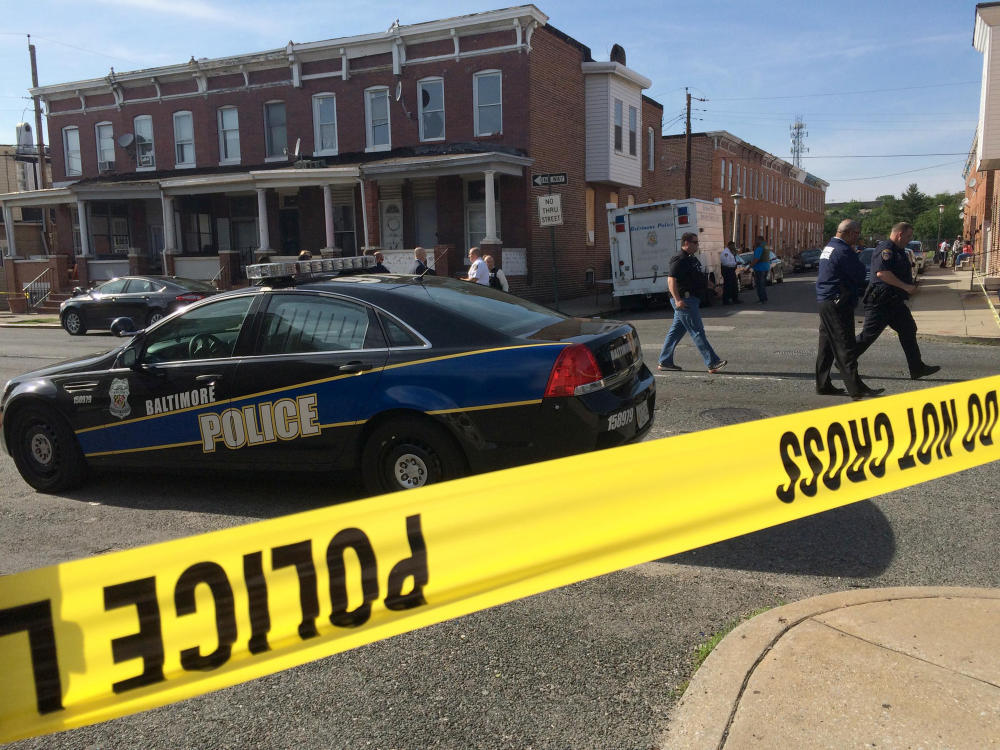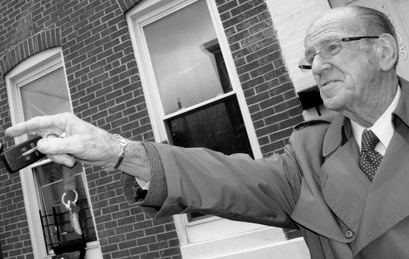
With 42 homicides last month, May was one of the deadliest months in Baltimore since the early 1970s. In fact, given the city’s shrinking population, last month was the deadliest, per capita, in at least four-plus decades. Unfortunately, the violence doesn’t seem to be relenting so far in June.
With the Freddie Gray tragedy, aftermath, and the recent increase in homicides in mind, we spoke with retired Baltimore City Police Department Lt. Stephen Tabeling, a former homicide investigator and police academy instructor. Tabeling (below photo) is also the co-author of You Can’t Stop Murder: Truths About Policing in Baltimore and Beyond with longtime investigative reporter Stephen Janis.
What was your initial reaction last month to the sudden increase in shootings and homicides?
Homicides around the United States are cyclical, but when this [spike] hit, it seemed to me that the police had stopped aggressively policing.
When you say “aggressively policing”—what do you mean by that?
The best tool we have to get guns off the street is “stop and frisk.” But it has to be done properly, with reasonable cause. Whether you make an arrest and charge someone, or don’t find anything and let him or her go—you have to write a report. The Supreme Court gave police that authority in Terry v. Ohio, an 8-1 decision. In my book, I say you can’t stop murder because it’s a crime of passion, but you can get guns off the street and prevent murder. You have to follow the law, but you also have to be a little aggressive. Unfortunately, some policemen have strayed away from the law and that’s how this started.
But by taking someone’s gun away [via stop and frisk], you limit their opportunity to commit a homicide, to commit a lot of crimes.
What do you believe is the reason for police becoming less aggressive and making fewer arrests over the past several weeks?
I think police are doing their jobs, but when the prosecutor [Marilyn Mosby] brought the false arrest charges [against officers involved in the Freddie Gray case], police officers became a little leery about aggressively making arrests. They’re worried about putting their hands on people and getting charged. You can’t police when you’re in fear and, when I say that, I don’t mean physical fear—these guys would take a bullet for a citizen—I mean fear of not being backed up and supported.
You don’t think the City State’s Attorney should have brought forward the false arrest charges, which, we should note, were later dropped in the grand jury’s indictment?
I’m just one person, but it’s not just me—a lot of people feel that way. Police officers deal with a lot of problems and have to make a lot of instantaneous decisions. They don’t often have time to sit and think things through and consider everything—they have to act and react in the moment. They will make mistakes in judgment.
Do you think criminals feel emboldened currently because arrests are down and maybe they feel like police are more hesitant to confront them?
They know if they’re carrying a gun, they’re less likely to get caught right now.
What can be done in the short-term to turnaround this active violent stretch we’re in?
The police need to know they have the support of the commissioner [Baltimore City Police Commissioner Anthony Batts], the mayor [Stephanie Rawlings-Blake] and City Hall.
You don’t feel like they do right now?
I’ve been to the Western District and I’ve spoken with a number of officers and morale is low. I can tell you as a former police detective, on the job for 25 years, and then another 10-11 years teaching at the police academy, I was embarrassed watching police officers being told to “stand down” while rocks were being thrown at them and building were being burned and looted in front of them. I’ve never seen that before in my life and I was took part in some riot situations. Police rush in, in those situations.
You know for a fact that police were given an order to “stand down.”
I know what I saw on television [as riots were taking place]. I know what I’ve read and what I’ve heard from police officers I’ve spoken with.
Other than working to improve morale, do you see specific areas where improvements can be made?
I don’t think there is good police supervision from the top on down. I also think there is too much of an emphasis on using plainclothes officers. You need uniformed officers on the street, getting to know people and building relationships to prevent crime and violence before it happens.
Longer term, how can the police respond to the challenges in the city, address and help reduce the violence?
Better training. It all comes back to training. Not just in policing, but training in the law. Police come from all walks of life today. They need to understand the Fourth [protection against unreasonable search], the Fifth [protection against self-incrimination] and the Sixth Amendments [right to an attorney] to the Constitution. They don’t need to know case law, but they need to know the concepts. And they need to be trained in how to testify.
So it all comes back to training.
That’s the other theme of my book. Ninety-seven percent of cops are good cops, good at their jobs. However, training today is not what it was in my day—and you also have investigators who don’t have the same level of experience. That’s why the closure rate is higher today that it was in the 1970s, for example, when we had more violence and fewer homicide detectives. You go out now and you see supervisors looking over the shoulders of detectives—that tells you right there they don’t have confidence in them.
Last question is about the Freddie Gray case specifically. According to the Baltimore City Police Department’s own investigation, he was handcuffed, but left unsecured in the back of the police van where his fatal injuries are said to have occurred. How did you handle arrestees and those taken into custody?
We didn’t have the police vans with the partitions in my day. We had police cruisers that came around, but you sat in the back with them. We had larger wagons that came around, too, but you always sat in the back with them—it may have been a little more dangerous—but they were never left alone.

